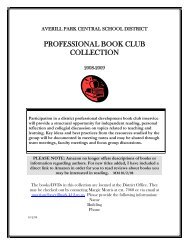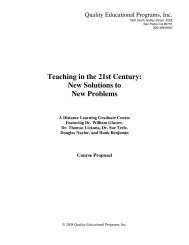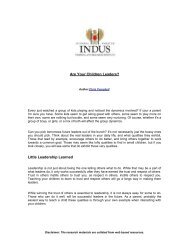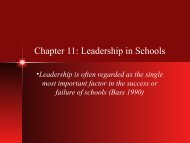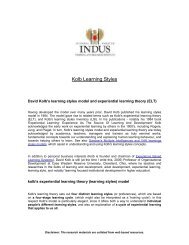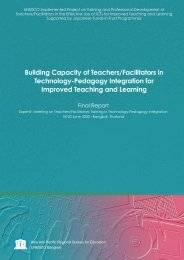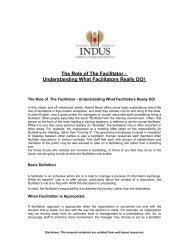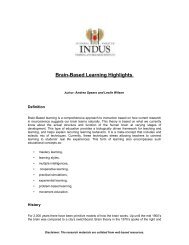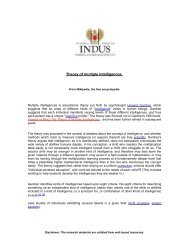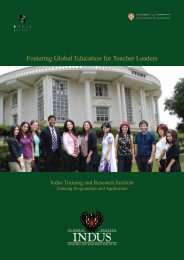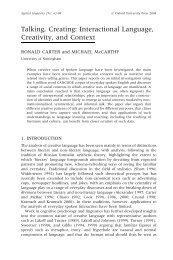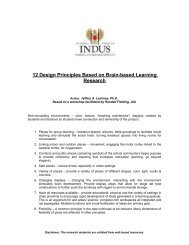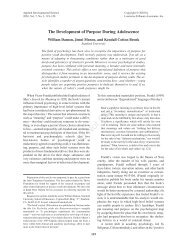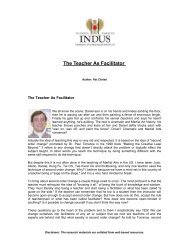Primary Years Programme Making the PYP happen - ITARI
Primary Years Programme Making the PYP happen - ITARI
Primary Years Programme Making the PYP happen - ITARI
- No tags were found...
Create successful ePaper yourself
Turn your PDF publications into a flip-book with our unique Google optimized e-Paper software.
<strong>Making</strong> <strong>the</strong> <strong>PYP</strong> <strong>happen</strong><br />
activities students apply skills and concepts in new contexts as well as learn new skills and concepts in<br />
meaningful contexts.<br />
As embryonic historians, geographers and social scientists, students learn to plan, collect, organize, interpret<br />
and present <strong>the</strong>ir findings by:<br />
! formulating and asking questions about <strong>the</strong> past, about places and about society<br />
! drawing information from, and responding to, stories about <strong>the</strong> past, from geographical and<br />
societal sources<br />
! using and analysing evidence from a variety of historical, geographical and societal sources<br />
! sequencing in chronological order<br />
! orientating in relation to place<br />
! identifying roles, rights and responsibilities in society<br />
! assessing <strong>the</strong> accuracy, validity and possible bias of sources<br />
! distinguishing between fact, opinion and fantasy<br />
! interpreting evidence in order to speculate<br />
! comparing and contrasting different sources<br />
! empathizing with people<br />
! organizing and communicating <strong>the</strong> results of <strong>the</strong>ir inquiries.<br />
Students and teachers develop and define clear criteria with which <strong>the</strong>ir final presentation or product will be<br />
assessed.<br />
Why is a <strong>PYP</strong> social studies classroom <strong>the</strong> way it is<br />
Students learn best when constructing meaning about questions which are significant and meaningful in<br />
<strong>the</strong>ir own lives, building on prior knowledge. An inquiry-based social studies programme enhances <strong>the</strong><br />
likelihood that students will feel <strong>the</strong>y belong to a community of learners. It helps <strong>the</strong>m develop<br />
problem-solving skills and become decision makers. As a result, <strong>the</strong>y will later be able to chose between<br />
and among political alternatives and make economic choices. They will be able to work in groups to solve<br />
local and global problems and make responsible choices about <strong>the</strong>mselves, o<strong>the</strong>rs and <strong>the</strong> environment.<br />
In a world which is a complex mix of races, cultures, languages, religious affiliations and social class,<br />
students need to recognize that <strong>the</strong>re is no one way of looking at events, situations, issues or problems.<br />
When <strong>the</strong>ir own school experiences allow <strong>the</strong>m <strong>the</strong> right to hold positions which may differ from o<strong>the</strong>rs and<br />
reflect that such positions are valid and valued, students will be able to seek and value o<strong>the</strong>r people’s points<br />
of view.<br />
How are social studies practices changing (See figure 29)<br />
How is social studies connected<br />
The social world is influenced by science and technology. Scientific questions may need to be answered and<br />
scientific concepts understood, in <strong>the</strong> course of what is primarily a social studies inquiry.<br />
Like social studies, <strong>the</strong> arts, including literature, are an exploration and illumination of life. These parts of<br />
<strong>the</strong> curriculum value <strong>the</strong> subjective and introspective as ways of knowing. Students can enhance <strong>the</strong>ir<br />
understanding of social studies through art, music, dance and reading literature.<br />
Ma<strong>the</strong>matics and language are both server disciplines to social studies. Social studies needs language to<br />
define its concepts and ma<strong>the</strong>matics to quantify <strong>the</strong>m. Students in language classes (whe<strong>the</strong>r ESL, host<br />
country, mo<strong>the</strong>r tongue or foreign) learn through appropriate social studies content.<br />
© IBO 2000 85



